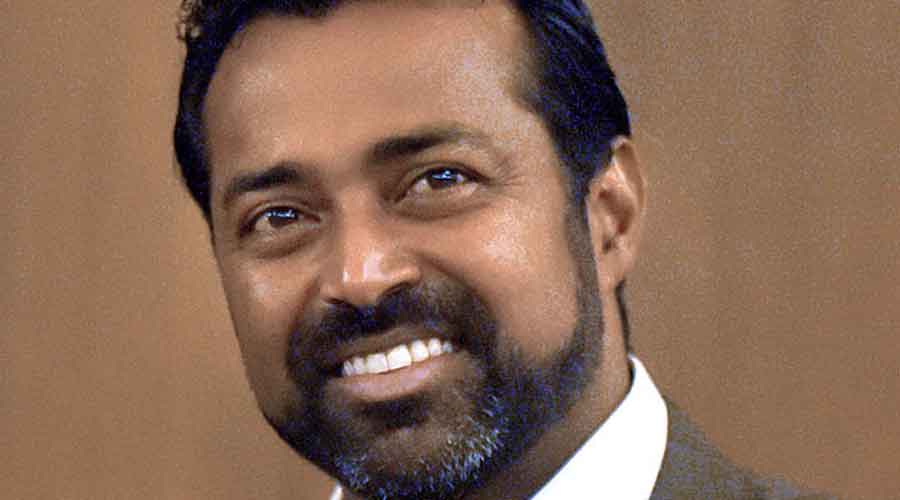1992 to 2016, seven Olympic Games - that has been the longevity of Leander Paes. What has made his Olympic journey special is the fact that not only is he the only Indian to take part in seven consecutive Olympics, he is also the only tennis player in the world to have achieved this feat.
He wanted Tokyo 2020 to be his farewell, but the pandemic and the postponed Games put a spanner in his plans. He skipped almost all tournaments in 2020 and failed to have the necessary rankings to earn a ticket to Tokyo.
But longevity apart, there is a medal to consider and also a victory in doubles against a team that had Roger Federer.
One medal, that too a bronze, in seven Olympics may not seem much. But the fact that the country has not added to the one Paes won on August 3, 1996 at the Atlanta Games, in tennis, underscores its importance.
"For me, the Olympics have always been special. Ever since I picked up a racket my dream was to win an Olympics medal… just like my father had done," Paes told The Telegraph. His father, Dr Vece Paes, was part of India's bronze medal-winning hockey team in the 1972 Munich Olympics.
"The two medals have a pride of place in our residence. Growing up, I used to polish my Dad's medal every Saturday," he said, adding that winning the bronze was perhaps one of the finest moments of his life.
His Olympic journey had started four years earlier, in Barcelona. And the then 19-year-old Paes, partnering Ramesh Krishnan, had reached the men's doubles quarter finals where the Indian duo lost to the Croatian pair of Goran Ivanisevic and Goran Prpic.
"That loss hit me real hard. I just sat on a bench for hours after that trying to come to terms with it. Later I realised that Ramesh would be retiring and I really had no idea who could be my partner in the next Olympics. So I started concentrating more on singles. In Atlanta, I really wanted to win a medal," he said.
And that bronze he won remains India's only Olympic tennis medal. Paes won an individual Olympic medal after a gap of 44 years. One can say it was a bit of a major nudge for Indian sport. Since then India have never returned empty handed in individual sport from the quadrennial spectacle.
After losing a memorable match to Andre Agassi, Paes defeated Brazil's Fernando Meligeni in the bronze medal match at the Stone Mountain Tennis Centre, overcoming a first set loss, 3-6, 6-2, 6-4. "My match winning point came as Meligeni's lob went marginally long... I was in a lot of pain since I was playing with an injured wrist. But a stadium almost packed with Indians cheering me on made me realize what a moment it was… I had worked very very hard for it."
At the 2000 Sydney Games, Paes and Mahesh Bhupathi (the world No.1 doubles team in 1999) failed to really make a mark. But in 2004, at Athens, India came closest to winning the elusive second medal in tennis.
Heading into the Athens Olympics, the relationship between Paes and Bhupathi had seen many ups and downs. From being the world's top ranked team in 1999, by 2002 their partnership was almost over. But the duo came together for the Olympics, for the third time.
Seeded fifth, among the teams they beat on way to the last-four stage was Switzerland who fielded Roger Federer and Yves Allegro. But India's luck then ran out. They lost the semi-final to Germany's Nicolas Kiefer and Rainer Schuttler and then an epic bronze medal match to the Croatian pair of Ivan Ljubicic and Mario Ancic 6-7 (5-7), 6-4, 14-16. The match lasted nearly four hours.
"Losing that match was agony. We had come so close to winning a medal," said Paes.
Four years later at the Beijing Olympics, Paes and Bhupathi were up against Federer once again. But this time, in the quarter finals, the Swiss had Stan Wawrinka as his partner and won in straight sets.
The last two Olympics that Paes took part in - the 2012 London Games and the 2016 in Rio - were more about off court controversies rather than on court achievements. Indian tennis was in the news for all the wrong reasons.
But the importance of being Paes will remain one of the finest aspects of India's Olympic history.










